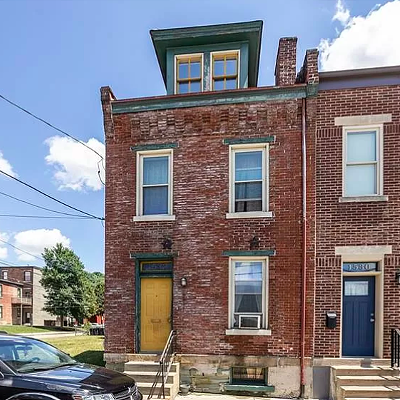In view of the move to oust Mayor Tom Murphy, in the history of Pittsburgh has any mayor ever been removed from office?
Question submitted by: Joe Forbes, South Side
[
{
"name": "Local Action Unit",
"component": "24929589",
"insertPoint": "3",
"requiredCountToDisplay": "1"
}
]
As a rule, it’s easier to toss a Pittsburgh mayor into jail than it is to toss him out of office. This is the city, after all, that in the 1850s elected Joe Barker, who became mayor while sitting in jail for inciting a riot. Barker was an anti-Catholic bigot who governed so recklessly that the city somehow ended up with two police forces, each making war on the other while supposedly keeping the peace. He even once forced citizens to listen to calliope music against their will. Yet despite these abuses, it took until the next election to get rid of him.
The current mayor, of course, isn’t adding a second police force to the city payroll but cutting the one we have. But it will be just as hard to get rid of him.
To impeach the mayor under the city’s home rule charter, you only need 20 signatures on a petition stating a cause for removal. The petition is reviewed by a Common Pleas Court judge and if the cause for action is sufficient, City Council sits in judgment and votes on whether to remove him.
There’s just one problem with the procedure: It probably violates the state constitution as flagrantly as any mayor ever has.
According to a 1995 state Supreme Court decision, In re Petition to Recall Reese, the only means of removing a local official from office is under the terms of Article VI, section 7 of the constitution. That provision holds that “All civil officers shall hold their offices on the condition that they behave themselves well” (which makes it sound oddly like they’re being allowed to stay up late on a school night). If they don’t behave themselves, the procedure for removing them is much like that used to impeach the president of the United States: the (state) House votes to impeach, and two-thirds of the (state) Senate must vote to remove.
Obviously, however, at both the federal and the local level, such procedures are used only for very important breaches of the law and the public trust. You know, like having an affair with an intern. Obviously, Mayor Murphy is not committing any sexual indiscretions -- that may be part of his problem -- so impeachment isn’t likely.
In fact, when mayors have been removed, it’s generally been through shenanigans as objectionable as the mayors themselves.
In 1900, for example, Pittsburgh fell under the purview of a new city code. Drafted by Pittsburgh reformers who hoped to remove the current mayor, a tool of the notorious Flinn-Magee political ring, the measure gave the governor the power to rip out the city’s mayor and replace him at will for the next three years. But reformers quickly discovered the flaw in their “Ripper Bill”: The mayor wasn’t the only official in cahoots with Pittsburgh’s bosses. When Mayor William Diehl was ripped out of office, the governor replaced him with one A.M. Brown, who began firing political appointees from office, just as reformers had hoped. Soon enough, however, he was ripped out of office, and replaced with a man who belonged to the very political ring that Pittsburgh reformers hoped to get rid of.
As Lincoln Steffens put it in his treatise on municipal corruption, Shame of the Cities, “Thus the ring was restored to full control.” The “outrageous abuse of the Governor’s unusual power over the city incensed the people of Pittsburgh,” Steffens wrote. The fact that the citizens helped give the governor that unusual power in the first place only made it worse, naturally. (How did you feel when Tom Murphy used local sales tax money to build new stadiums?)
The legendary Davey Lawrence considered a similar approach 30 years later, when he was trying to get rid of Mayor William McNair -- whom Lawrence helped to elect. McNair was an incompetent who wouldn’t put appointees chosen by Lawrence, then the head of the Democratic Party machine, on the payroll. It’s hard to say which of these traits, incompetence or independence, Lawrence resented more, but he and other powerbrokers decided to employ a “ripper act” the next time McNair screwed up. As Michael Weber’s Lawrence biography, Don’t Call Me Boss, explains, in January 1935, McNair obliged “by precipitating a crisis” that involved “initiat[ing] a series of sudden firings that … destroyed his own credibility with the public.” (Sound familiar?)
Lawrence tried to pass a “ripper bill” that would have eliminated the office of mayor entirely, replacing it with a “city commissioner” he’d have the power to choose. But he couldn’t get it through the Republican Senate because of the opposition of one local state senator. (Again, sound familiar?) The bill was stuck in committee, and McNair was stuck in office, until he resigned nearly two years later.
No one’s tried a stunt like that since, and no one’s tried to oust a mayor using the legally dubious method provided for in the home-rule charter. So if we want to remove Mayor Murphy, we’re going to have to do it the old-fashioned way: by either electing someone else, or by getting him involved in a sex scandal.
Good luck either way.
The current mayor, of course, isn’t adding a second police force to the city payroll but cutting the one we have. But it will be just as hard to get rid of him.
To impeach the mayor under the city’s home rule charter, you only need 20 signatures on a petition stating a cause for removal. The petition is reviewed by a Common Pleas Court judge and if the cause for action is sufficient, City Council sits in judgment and votes on whether to remove him.
There’s just one problem with the procedure: It probably violates the state constitution as flagrantly as any mayor ever has.
According to a 1995 state Supreme Court decision, In re Petition to Recall Reese, the only means of removing a local official from office is under the terms of Article VI, section 7 of the constitution. That provision holds that “All civil officers shall hold their offices on the condition that they behave themselves well” (which makes it sound oddly like they’re being allowed to stay up late on a school night). If they don’t behave themselves, the procedure for removing them is much like that used to impeach the president of the United States: the (state) House votes to impeach, and two-thirds of the (state) Senate must vote to remove.
Obviously, however, at both the federal and the local level, such procedures are used only for very important breaches of the law and the public trust. You know, like having an affair with an intern. Obviously, Mayor Murphy is not committing any sexual indiscretions -- that may be part of his problem -- so impeachment isn’t likely.
In fact, when mayors have been removed, it’s generally been through shenanigans as objectionable as the mayors themselves.
In 1900, for example, Pittsburgh fell under the purview of a new city code. Drafted by Pittsburgh reformers who hoped to remove the current mayor, a tool of the notorious Flinn-Magee political ring, the measure gave the governor the power to rip out the city’s mayor and replace him at will for the next three years. But reformers quickly discovered the flaw in their “Ripper Bill”: The mayor wasn’t the only official in cahoots with Pittsburgh’s bosses. When Mayor William Diehl was ripped out of office, the governor replaced him with one A.M. Brown, who began firing political appointees from office, just as reformers had hoped. Soon enough, however, he was ripped out of office, and replaced with a man who belonged to the very political ring that Pittsburgh reformers hoped to get rid of.
As Lincoln Steffens put it in his treatise on municipal corruption, Shame of the Cities, “Thus the ring was restored to full control.” The “outrageous abuse of the Governor’s unusual power over the city incensed the people of Pittsburgh,” Steffens wrote. The fact that the citizens helped give the governor that unusual power in the first place only made it worse, naturally. (How did you feel when Tom Murphy used local sales tax money to build new stadiums?)
The legendary Davey Lawrence considered a similar approach 30 years later, when he was trying to get rid of Mayor William McNair -- whom Lawrence helped to elect. McNair was an incompetent who wouldn’t put appointees chosen by Lawrence, then the head of the Democratic Party machine, on the payroll. It’s hard to say which of these traits, incompetence or independence, Lawrence resented more, but he and other powerbrokers decided to employ a “ripper act” the next time McNair screwed up. As Michael Weber’s Lawrence biography, Don’t Call Me Boss, explains, in January 1935, McNair obliged “by precipitating a crisis” that involved “initiat[ing] a series of sudden firings that … destroyed his own credibility with the public.” (Sound familiar?)
Lawrence tried to pass a “ripper bill” that would have eliminated the office of mayor entirely, replacing it with a “city commissioner” he’d have the power to choose. But he couldn’t get it through the Republican Senate because of the opposition of one local state senator. (Again, sound familiar?) The bill was stuck in committee, and McNair was stuck in office, until he resigned nearly two years later.
No one’s tried a stunt like that since, and no one’s tried to oust a mayor using the legally dubious method provided for in the home-rule charter. So if we want to remove Mayor Murphy, we’re going to have to do it the old-fashioned way: by either electing someone else, or by getting him involved in a sex scandal.
Good luck either way.










